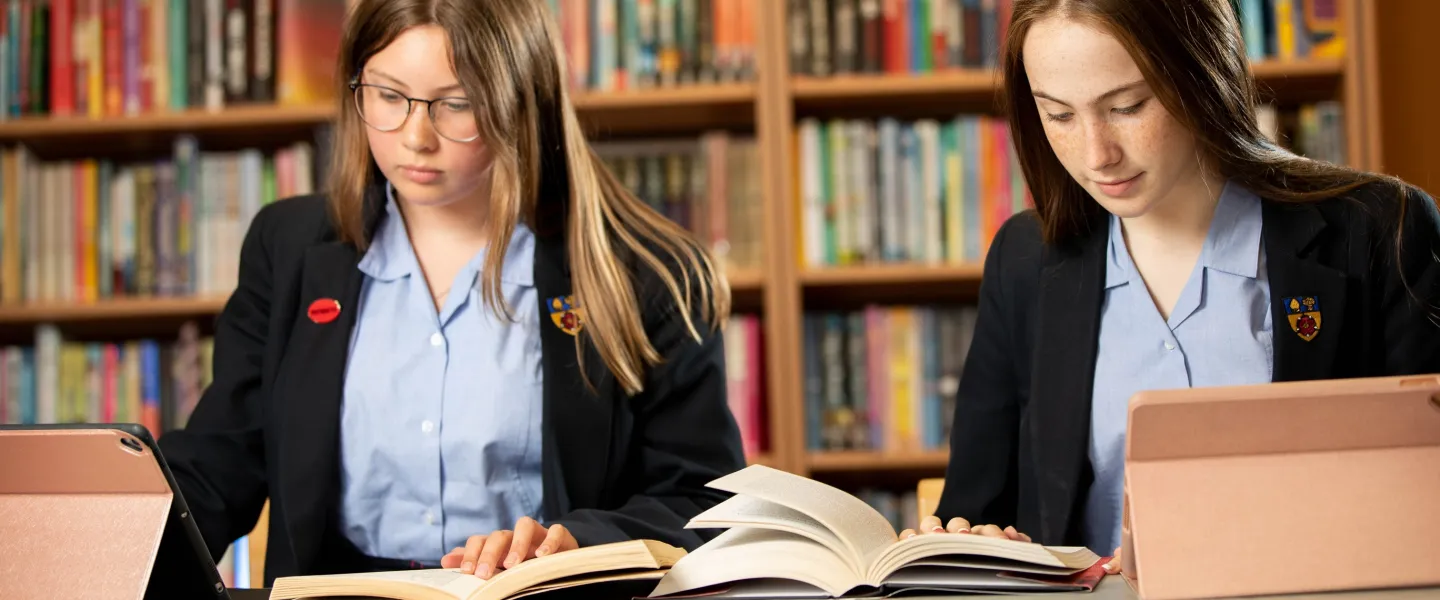At The Queen’s School, we understand that a structured approach to revision is key to good exam performance. Whilst there is no one-size-fits-all method to achieve your desired grades, there are a few processes that can be implemented to ensure you create a quality revision plan. Below we’ve outlined some useful information to help you get started if you’re preparing for your upcoming exams.
How to effectively revise for GCSEs and A-levels
Knowing where to begin when revising can feel like an overwhelming task, but by following our advice, you can break it down into manageable sections and improve your overall approach to revision.
Most importantly, you need to ensure that you are effectively engaging with your learning materials. Doing so will help you retain any important information or techniques that may help you in your exam. One of the best ways to do this is by varying your approach to revision; for example, creating revision notes such as flashcards or mindmaps are some of the best ways to improve your ability to recall information, which will greatly benefit you during your exams. Completing past paper examinations under timed conditions will familiarise you with the structure and process of an exam and can help you to improve your technique when answering questions. This practice may help to calm your nerves when it comes to sitting your real exams.
Starting your revision early will give you enough time to experiment with different revision methods. Give yourself enough time to prepare and find out what works best for you. Make sure to create a varied revision timetable to prevent you from passively learning. Keeping your revision schedule dynamic will prevent you from feeling bored or burnt out. If something isn’t working for you, try another method or reach out for help. If you need a break, spend time doing something you enjoy to unwind.
For pupils who are looking for further guidance on beginning their revision, we have compiled a list of our top 10 revision tips. In our blog, we outline how to create an organised and in-depth revision plan and timetable that will ensure that you are confident and prepared for your examinations.
Does exercise help revision?
For you to effectively revise and prepare for your examinations, you must take regular breaks to avoid burnout. One of the best ways to re-energise yourself when you are feeling tired or distracted is through exercising. Research has shown that exercising can improve your long-term memory, increase your concentration, and boost the levels of endorphins in your body. Fitting in exercise into your revision schedule can help by relieving stress and increasing your ability to focus and retain information. Whether it’s team sports, yoga, or a walk around the park, keeping fit can massively improve your overall mood and your ability to revise effectively. Find out more about how exercise can positively impact your revision by visiting our blog written by the Head of PE.
Often GCSEs will be the first time you’ll have to consider your approach to revision. Whilst our general revision tips will still apply, there are a few separate things you may need to consider.
When do GCSEs start and finish?
GCSEs usually start in mid-May and end in late June. You will receive a personalised exam timetable in advance of the exam period detailing each of your examinations.
When should you start revising for GCSEs?
You will sit mock exams in the January before your GCSEs so your revision should have started for these in the Autumn term. Once you have sat your mock exams you will have a clearer idea what areas you need to focus on for the real exams in the summer. The more time that you spend preparing, the more confident you will feel for the exam.
How long does a GCSE exam take?
GCSE exams vary in length and format depending on the subject. Most exams take between 1-2 hours to complete.
How are GCSEs graded?
In 2017, the GCSE grading system changed. GCSEs used to be graded using the letters A*-G, but now almost all of them are marked using numbers 1-9, with 9 being the highest grade that you can achieve.
How many GCSEs does a student take?
At The Queen’s School students generally study 10 GCSEs.
How to revise for exams?
Revision starts well before the exam, and it is so important to be well organised and plan effectively in order to ensure that time is used as productively as possible.
Planning revision exercises carefully and in a timely manner will benefit longer-term retention of information and also help to alleviate any potential test anxiety.
Check with your teacher which exam board you are studying and ensure that you have a copy of the specification. Review all the contents and ensure that you are confident in all the examined areas. This exercise is very useful as it will encourage you to focus your time on the most appropriate areas. Looking at the exam reports is a really useful exercise as it highlights what the examiners are prioritising.
How to create a revision timetable
Each subject contains topics and each topic should then be split into shorter, more manageable, sections. Doing this will prevent the material from feeling overwhelming. You should create a revision timetable and stick to it. It should be realistic and include breaks. You should populate the timetable with the shorter manageable sections from each topic.
